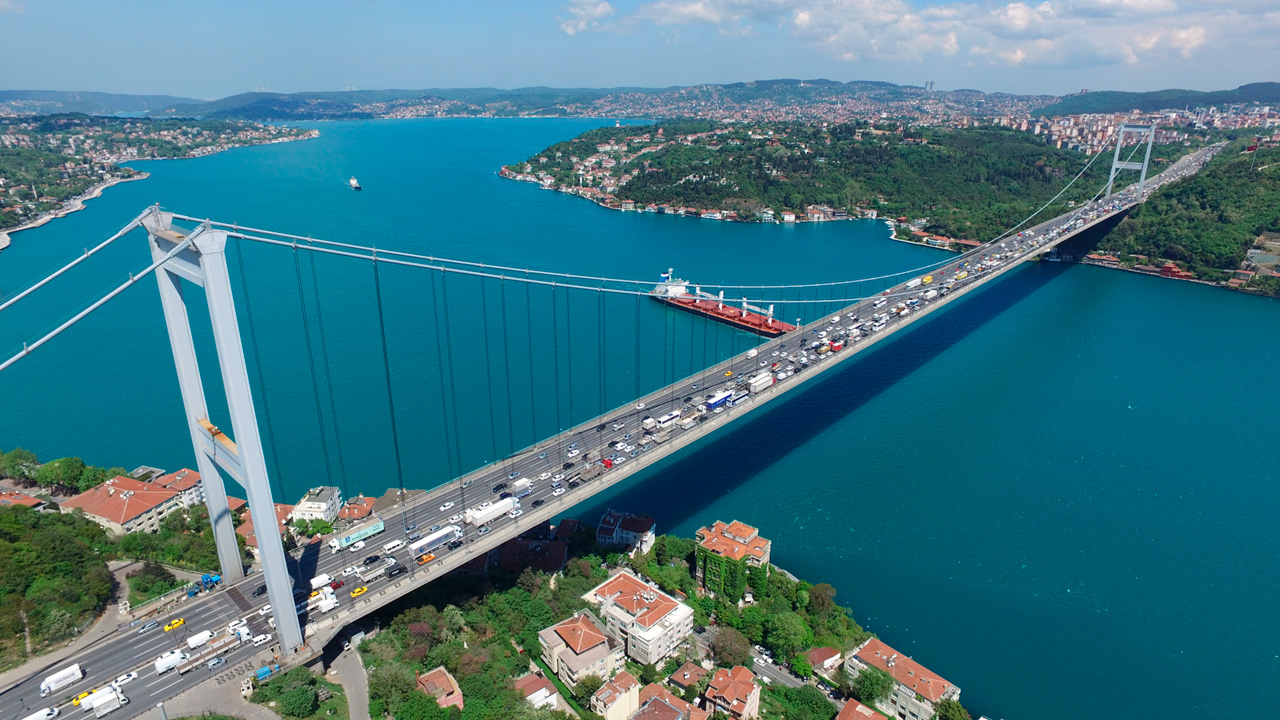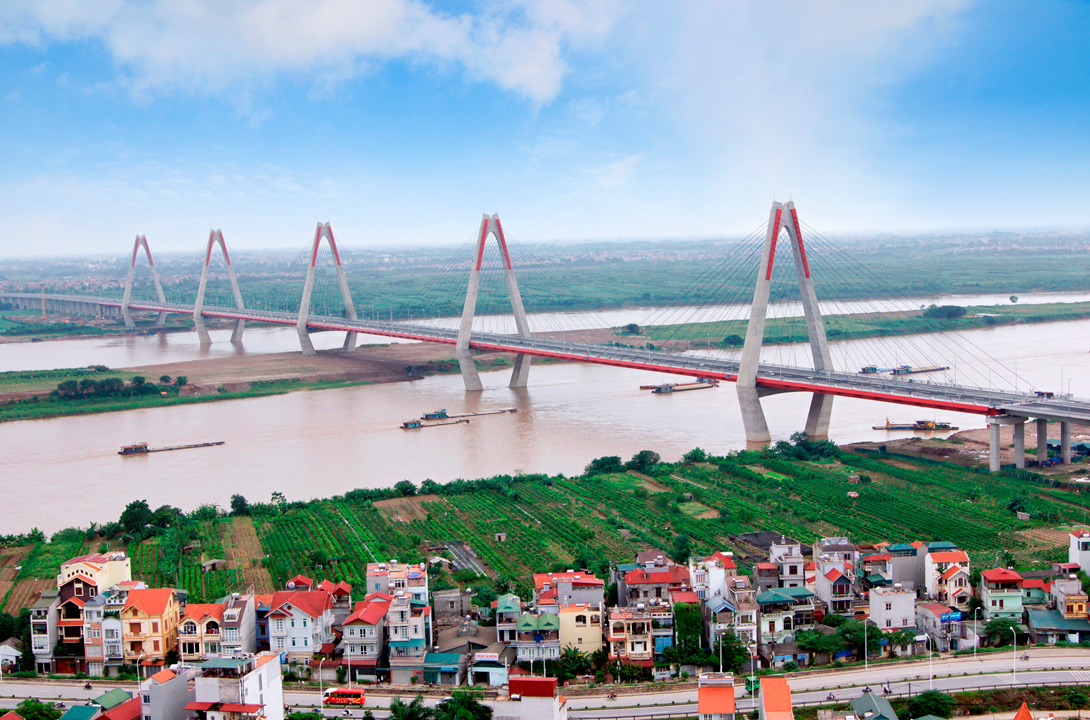IHI Infrastructure Systems harnesses its technical expertise to provide first-class infrastructure both in Japan and beyond.

“As well as delivering and maintaining infrastructure such as roads, bridges and water gates, we focus on providing services and products such as seismic isolation systems for buildings, to enable safe, secure and comfortable lifestyles.”
Kazuya Ueda, President, IHI Infrastructure Systems Co., Ltd.
Founded in 2009 – as a joint venture between the vastly experienced companies IHI Corporation, Matsuo Bridge and Kurimoto Bridge – IHI Infrastructure Systems specializes in the construction, maintenance and renovation of roads and bridges, bringing its expertise to major projects both in Japan and overseas.
On the domestic front, IHI Infrastructure Systems’ know-how is proving to be essential as Japan updates its aging civil infrastructure. “This is one of the challenges the country currently faces,” says the company’s president, Kazuya Ueda. “Renewal of aging infrastructure and renovation due to changes in environment and standards generally require greater technical capabilities than new infrastructure development. We have experience accumulated over a long period of time – a great strength in projects that require major technical capabilities.”
IHI Infrastructure Systems also boasts significant expertise in protecting Japan against natural disasters like earthquakes, which occur frequently in the Asian country. In addition to strengthening buildings with technology such as seismic isolation floors, the company is bolstering Japan’s infrastructural resistance. “The Japanese government has started initiatives to provide alternative routes should a natural disaster strike and suspend the operation of roads and bridges,” Mr. Ueda says. “This work is ongoing.” The firm also has a track record of building state-of-the-art dams and water gates for flood control.

Nhat Tan Bridge, Vietnam
Outside Japan, IHI Infrastructure Systems uses its technology to protect other vulnerable countries against natural disasters. “After the Kocaeli earthquake in Turkey in 1999, for example, we carried out seismic reinforcement work on major bridges in Istanbul,” Mr. Ueda notes. “And since then, our efforts to strengthen disaster resistance in the country have continued.”
As IHI Infrastructure Systems’ presence abroad steadily grows, the company’s international ambitions extend right around the globe, Mr. Ueda says. However, Asian countries with significant infrastructural needs will, for now, be the focus of a firm that has established overseas bases in the Southeast Asian nations Myanmar and Vietnam. “Many countries in Asia require infrastructure maintenance and reinforcement, so we see good opportunities for IHI,” he explains.
While IHI Infrastructure Systems’ international endeavors are central to its future, so too is its ability to cope with a key domestic challenge: overcoming Japan’s aging, shrinking labor market to bring through the company’s next generation of workers.
On the one hand, the firm has responded to the country’s talent shortfall by embracing automation; on the other, it is targeting a more diverse workforce – and knows it is vitally important that its employees are happy in their jobs. “We’re looking to hire more female and non-Japanese workers,” Mr. Ueda says. “And to attract and motivate young talent, we need to enrich their lives by ensuring they have a healthy balance between work and home life. At the same time, we must successfully transfer knowledge from older workers to these younger employees.”
0 COMMENTS